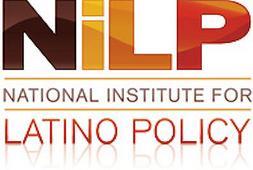
NiLP Commentary
The Prospects for DACA and Immigration Reform
By Angelo Falcón
The NiLP Report
 Trump's recent meeting on DACA and other immigration issues with top
Congressional leaders was described by some as the launch of the second
season of the reality TV presidency. It also raised expectations among
others that Trump was open to address the adoption of comprehensive immigration
reform starting with the DACA restoration. Then the next day Trump tweets,
returning to his original position, that his support of DACA would be
conditioned on getting funding for the Mexica border wall. This, following
what is now a familiar script, comes with a lower federal court issuing
a temporary injunction against ending DACA, which the White House called
"outrageous." Is this a new season of this surreal show or merely
a rerun of its first season?
Trump's recent meeting on DACA and other immigration issues with top
Congressional leaders was described by some as the launch of the second
season of the reality TV presidency. It also raised expectations among
others that Trump was open to address the adoption of comprehensive immigration
reform starting with the DACA restoration. Then the next day Trump tweets,
returning to his original position, that his support of DACA would be
conditioned on getting funding for the Mexica border wall. This, following
what is now a familiar script, comes with a lower federal court issuing
a temporary injunction against ending DACA, which the White House called
"outrageous." Is this a new season of this surreal show or merely
a rerun of its first season?
Despite all the talk of reform, for the Latino community the reality is being the main object of what I call Trump's immigration reign of terror. The original stated goal of Trump deportations was, similarly with Obama, was to focus on those with violent criminal records, but this turned out to be an out-and-out lie, and Trump's Deportation Force has been mercilessly raising havoc in immigrant communities throughout the country. His approach appears to be one that aims at disrupting and creating unbearable anxieties in immigrant communities to discourage further immigration. This has been successful in discouraging further immigration as well as making immigrant communities more suspicious of government. This has resulted in fewer immigrants reporting crimes and specific sectors of the economy, especially agriculture, seeing labor shortages. The arbitrary ending this week by Trump of the Temporary Protection Status (TPS) for Salvadorans and others added to this dreaded sense of uncertainty of forced deportations and family separations.
Despite the Congress grappling with the issue of immigration reform for years, and the White House developing a plan to cut legal immigration by half and ending chained immigration, at the Trump meeting with Congressional leaders, one got the impression that the issue only emerged the day before. How is it possible, with this history of grappling with this problem that their discussion of this important issue was so elementary? Why was Trump punting to the Congress on immigration when it seems clear that the Congress is at a stalemate on this issue, especially with the manner in which he is framing it?
Polls indicate that as much as 73 percent of Americans support DACA restoration, while 60 percent opposes building the Mexico border wall. How, then, does the Congress combine these issues in one bill? The Democrats and immigrant rights advocates are for a separate "clean" DACA bill, while the Republicans want it linked to increased border security and drug interdiction, which Trump equates with the wall. With Republicans in the majority, is there any way I hell that the Democrats can get a "clean" DACA bill? Will they use a highly unpopular government shutdown as leverage? Or will they have to compromise on some sort of border security program if Trump's border wall can be redefined as something other than he initially had in mind and that he would accept?
The way the Republicans discuss the need for increased border security, one gets the impression that there currently is none or it is severely underfunded. The reality is much different. The US currently spends over $13.6 billion on border security, employing over 20,000 Border Patrol Agents. With border crossings at a historic low and the majority of unauthorized entries being by air, the rationale for spending billions more on the border is rather weak. The increased enforcement action has clearly been domestic, with a sharp rise in undocumented immigrant arrests, like yesterday's 7-Eleven raids.
Latinos, by the way, are the most underrepresented group in the federal government employ, making up only 8 percent of the federal workforce despite being 18 percent of the population. However, the federal agency that has the highest percentage of Latino employees is Homeland Security (23 percent Latino) because a majority (52 percent) of Border Patrol Agents is Latino. Ironically, the Latino community is the most opposed to greater border security funding, the one federal agency with the best record of Latino employment.
Border security includes immigration detention, a process that had its start on Ellis Island in the 1890s. But it wasn't until 1996, under President Bill Clinton, that mandatory detention was authorized by the federal government, which by 2003 had become the largest immigrant detention program in the world. These immigration detention centers have been criticized for poor living conditions, made worse by the privatization of these facilities. But even in comparison with American prisons and jails, those in these immigration detention centers have almost no rights to protect them. These detention centers have become a new mass incarceration mechanism that is fed by an immigration-industrial complex that operates with an alternative rules system with no relationship to basic American legal standards.
This immigration detention system doesn't receive much attention in the immigration debate because it is an embarrassment. But this embarrassment disproportionately impacts on the Latino population. While 62 percent of Latinos are US-born and another 17 percent are naturalized, or statutory citizens (Puerto Rico), about 21 percent are not citizens and subject to this alternative immigration legal regime. In this sense, within the discussion of the problem of mass incarcerations in the United States, Latinos are disproportionately affected by this status that affords them fewer rights than regular prison and jail inmates.
In light of all this, what are the prospects for a DACA restoration and comprehensive immigration reform? The DACA issue is now in the courts, which can delay its ending but may not save it in the long run. As long as Trump maintains his only with Wall funding stance, its fate in the Congress is bleak unless Trump accepts a redefinition of his Wall into a more amorphous border security approach (fences, drones, more agents, etc.). In this sense, the Democrats would have to accept a wasteful and unnecessary border security funding increase to give the Republicans an election year claim. This may be the most possible scenario for a DACA restoration.
The problem with extending DACA is that it was always a temporary fix for the 800,000 Dreamers. This raises the question of the prospects for a comprehensive immigration reform that includes a path for legalization and, ultimately, citizenship not only for the Dreamers but for all eligible undocumented immigrants. In a Republican-controlled Congress, any comprehensive immigration reform would probably be mostly punitive and incomprehensibly Kafkaesque. While it is most likely to be possible in its more humanitarian form under a Democratic Congress, this was the hope in 2009, and it didn't happen. But the hope in many circles is that a Democratic wave election this year will make comprehensive immigration reform a real possibility in 2019.
Any immigration reform this year, beyond a DACA extension, would have to drop the "comprehensive" part and be much more incremental. This could include such things as legalizing immigrants in specific economic sectors such as agriculture, reforming the immigrant detention centers, strengthening the rights of the undocumented in the immigration system, increasing the number of immigration judges, focusing enforcement more on employer sanctions, and so on.
I hate to end this with an "and so on," but this issue has been so tricky to pin down that this seems like an appropriate way to do so. Y así.
Angelo Falcón is President of the National Institute for Latino Policy (NiLP). He can be reached at afalcon@latinopolicy.org.
